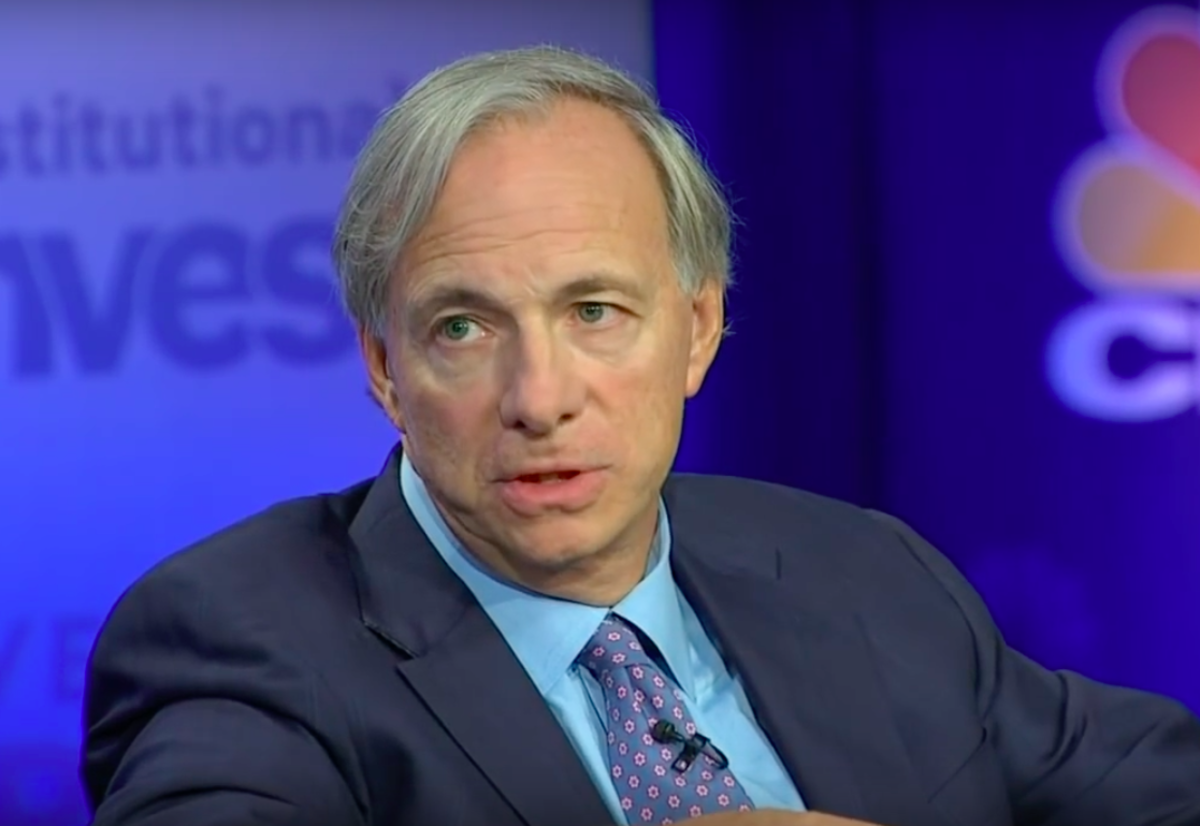John Yoo began the Trump administration with “grave concerns” over Trump’s view of limitless executive power. But Yoo still embraces the expansionist vision of executive authority he became famous for when he argued that the Framers intended for the Executive Branch to stick people dick first through meatgrinders without Congressional or Judicial oversight. It’s just that these days, he frames his theories as “worries,” offering a wink and nod to anyone who might interpret his work as a green light.
Now Yoo has written a wild screed in National Review interpreting the Supreme Court’s recent DACA opinion — an opinion that liberals hailed as a victory — as an open invitation for any White House that might want to take questionably illegal actions to go right ahead.
And Trump has made sure that recent photographs show the issue on his Oval Office desk.
Yoo feels the 5-4 opinion (the case also yielded a more tragic 8-1 lineup on the Equal Protection issue) functionally invalidates the purpose of the Constitution:
Such a rule upends the text, structure, and history of the Constitution, which generally prevents the occupants of a branch of government (who are temporary, after all) from binding their successors. The Constitution, for example, contains no system for undoing a statute. When Congress wants to repeal a law, it must pass a new law through the same process of bicameralism (House and Senate approval) and presentment (presidential signature). The Supreme Court effectively repeals past opinions simply by overruling the earlier case, though the Constitution does not expressly provide for such reversals. Brown v. Board of Education famously overruled Plessy v. Ferguson’s rule of separate-but-equal. When a president wants to repeal an executive order, all he need do is issue a new executive order. When agencies want to reverse a regulation, they must resort to the same sluggish method of notice-and-comment rulemaking.
Except… no. The bicameral system was designed for the purpose of slowing the ability of the legislature to respond to the “passions” of the electorate. The judiciary, at least before Justice Alito started his march to Janus had to show wide deference to precedent. This paragraph is comically at odds with the American legal tradition.
Yoo argues that this has to be the rule because the Framers “wanted each president to be fully accountable to the electorate for his actions without any diffusion of responsibility,” apparently forgetting the existence of the Electoral College and that 90 percent of the modern bureaucratic executive branch would have thoroughly confused a bunch of agrarian plantation owners.
It is important to understand that this principle applies even more strongly in the case of illegal presidential action. The Constitution vests in the president the responsibility to “take Care that the Laws be faithfully Executed.” The highest form of the law of the land is the Constitution. Under this duty, the president cannot enforce an executive order that violates the Constitution — here, the vesting of the power over immigration in Congress. Upon taking office, for example, President Thomas Jefferson immediately ended all prosecutions under the 1798 Sedition Act, which had made criticism of the government a crime, and pardoned those convicted under it.
Missing in this analogy is anyone’s reliance interest on the Sedition Act. The DACA majority didn’t bind presidents to every act of a predecessor, just that an action that creates reliance interests can’t be overturned without taking that into consideration. The opinion laid out a remarkably low bar. Indeed, as we pointed out, the real action was the 8-1 opinion where Justice Sotomayor stood alone arguing that maybe targeting Latinx kids was more about an Equal Protection violation than the finer points of administrative law. Yoo’s article doesn’t even begin to address the limits, say, the Fourteenth Amendment might place on executive power.
This all reads very much like Yoo is a hand-wringing classical conservative worried that the Supreme Court has legalized wild abuses of power. And yet he put it in National Review, a dead drop for anyone trying to reach the inner sanctum of Mar-a-Lago, where the White House counsel can mull its subtext. Yoo told the White House, under cover of consternation, that the Supreme Court has affirmed executive authority to take illegal action in immigration — and beyond. As dire warnings go, it’s all about as credible as Tom Sawyer warning the other kids about the perils of whitewashing fences.
“Now Donny, here’s that new BB gun you wanted, please don’t play with it!” Gosh, I wonder what the Trump White House might do with this information?
“We’re working out the legal complexities right now, but I’m going to be signing a very major immigration bill as an executive order, which Supreme Court now, because of the DACA decision, has given me the power to do that,” Trump said.
If John Yoo wanted to pen an article bemoaning the idea of a lawless White House and appealing to an innate sense of constitutionalism to rein in abuses now blessed by the Supreme Court, he’s about to be bitterly disappointed.
But I’m pretty sure he’s actually about to get exactly what he really wanted out of this article.
Earlier: DACA Opinion Confirms Supreme Court’s Cowardly Refusal To Acknowledge Donald Trump
John Yoo Crushes The Testicles Of Logic
 Joe Patrice is a senior editor at Above the Law and co-host of Thinking Like A Lawyer. Feel free to email any tips, questions, or comments. Follow him on Twitter if you’re interested in law, politics, and a healthy dose of college sports news. Joe also serves as a Managing Director at RPN Executive Search.
Joe Patrice is a senior editor at Above the Law and co-host of Thinking Like A Lawyer. Feel free to email any tips, questions, or comments. Follow him on Twitter if you’re interested in law, politics, and a healthy dose of college sports news. Joe also serves as a Managing Director at RPN Executive Search.






 Kathryn Rubino is a Senior Editor at Above the Law, and host of
Kathryn Rubino is a Senior Editor at Above the Law, and host of 


 Olga V. Mack is the CEO of
Olga V. Mack is the CEO of 






 Jordan Rothman is a partner of
Jordan Rothman is a partner of